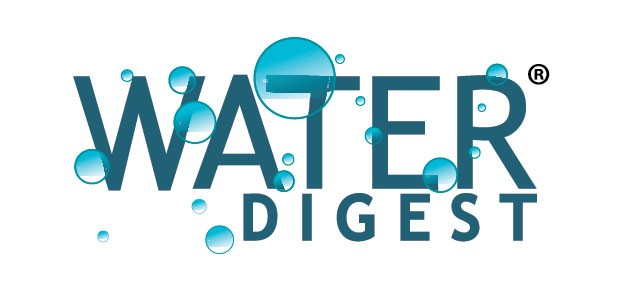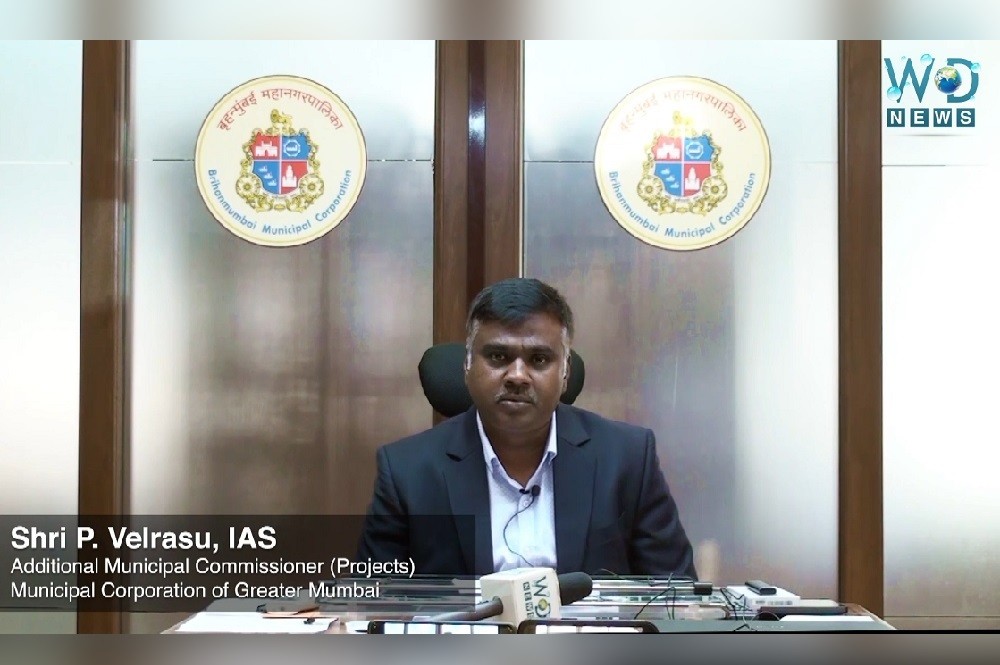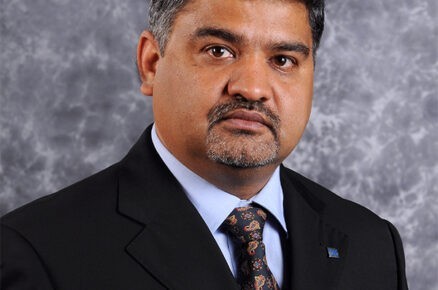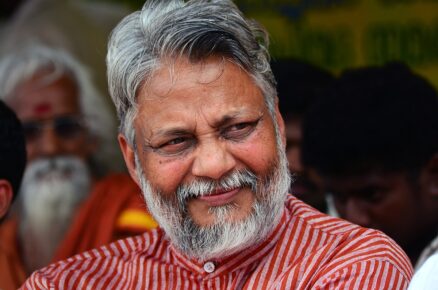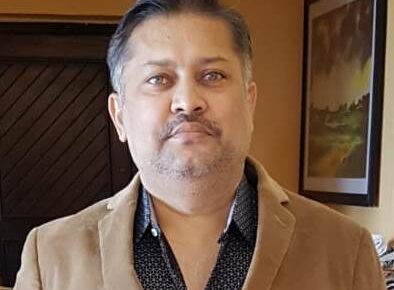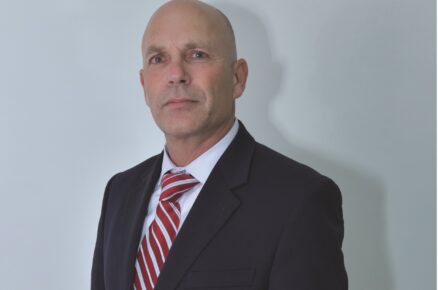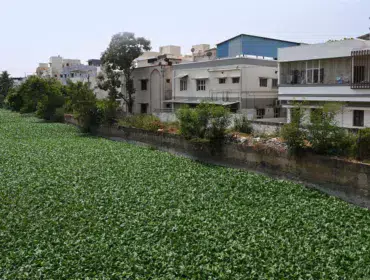In conversation with
Shri P. Velrasu, IAS
Additional Municipal Commissioner (Projects)
Brihanmumbai Municipal Corporation (BMC)
In an exclusive conversation with Water Digest, Shri P. Velrasu, IAS, Additional Municipal Commissioner (Projects), Brihanmumbai Municipal Corporation (BMC) shared the details of BMC’s new and ongoing projects, and provided us an indepth look into its plans to incorporate cutting-edge technologies with decades of experience to ensure that the financial capital of India boosts of world-class infrastructure which is smart as well as sustainable.
Water Digest (WD): In your opinion, what is the current state of the water sector in the nation and more specifically, Mumbai?
P. Velrasu (PV): Many reforms are taking place in the water sector at the national, state and city level. Even the mission for providing water to all the households in rural areas under Jal Jeevan Mission is being implemented and monitored at the state and national level.
As far as Mumbai’s water supply is concerned, it is in good condition and all the households in the city are connected with piped water supply. Enhanced treatment facilities have been commissioned to facilitate repairs and maintenance of old water treatment plants and maintenance of quality of water supply in Mumbai.
WD: What are some of the key developments in water sector Mumbai’s in the last few years?
PV: The volumetric metering of water supplied to consumers is essential and mandatory under Service Level Benchmark (SLB) requirements of the Government of India. The objective of effective consumer metering is to charge the consumer on actual water consumption, to quantify network losses through water audit, identify the areas to reduce water losses and thereby improving the water distribution efficiency with resulting increase in revenues and reduce capital expenditure on new sources by efficient and effective utilisation of available water resources.
We have allowed the use of Electronic Water Meters (Ultrasonic and Electromagnetic) because of their high accuracy. They have an in-built battery having a life of 5 to 10 years. The meters have been installed by some of the government connection holders such as BPCL, Central Railway, Western Railway and Navy, etc on a trial basis.
Under the revised water policy of May 2022, all the settlements on roads & footpaths, slums on private lands, slums in Coastal Regulation Zone (CRZ), slums on government lands reserved for public use, settlements on project affected sites are eligible for water connections, which was not the case earlier.
The water billing and collection system has also been upgraded to Aqua Product, under which about 250 reports can be generated such as high value consumers, category wise outstanding of dues, category wise demand and collection, top 100 defaulters, etc.
We have also started a WhatsApp Chatbot to offer various services such as water bills, payment of water bills, online services for application of new water connection, bill payments, copy of duplicate bill, etc.
For the better management and monitoring of water supply, BMC introduced Supervisory Control And Data Acquisition (SCADA) system in 2001. This system al lows real time monitoring of pressure, flow and reservoir levels and take corrective action/ measures wherever necessary. Upgradation of SCADA is in progress since the last two years.
Besides, additional 62 flow meters are being installed for the assessment of flow and supply to particular wards, zones and reservoirs.
BMC has also taken initiatives to improve the quality of water in Mumbai. The passing percentage of field samples improved from 90.31% (2013-14) to 99.92% (2021-22). Field water quality is monitored on daily basis by collection of field samples (about 3000 samples per month). They are tested for bacteriological parameters. Over a period, it has been observed that the percentage of fit samples is increasing year after year and has come up to 99.92%.
BMC has introduced deep underground tunnels to overcome repairs and maintenance of big water mains existing in thickly populated areas, narrow spaces and under roads with heavy traffic. At present, 90 kms tunnels are functional along 15 routes in Mumbai. These tunnels range in 2200 mm to 5500 mm in diameter. Tunnels for 20 kms are under construction along three routes.
In 2019, in an independent water quality survey conducted by Bureau of Indian Standards (BIS) in 20 cities in the country, Mumbai’s water quality was found to be the best among all the cities surveyed.
WD: Please shed some light on BMC’s recently awarded ambitious Mumbai Sewage Disposal Project – II and the seven Sewage Treatment Plants (STPs).
PV: Recently, BMC was awarded the work for construction of seven STPs in Mumbai, based on Design, Build and Operate (DBO) basis – Worli, Bandra, Dharavi, Malad, Versova, Ghatkopar and Bhandup.
These plants are based on the latest treatment technologies such as Sequential Batch Reactor (SBR) and Membrane Bio Reactors (MBR). Sludge generated from the plants will be treated to Class A biosolids as per USEPA 40 regulations before disposal for further processing. Power generation from biogas is generated in the process. Odour control systems to preliminary units and sludge handling units is also proposed.
WD: What are some of the cutting-edge technological interventions in these STP projects? What is the provision of managing the biosolids generated during the process?
PV: The latest Sequential Batch Reactor (SBR) Technology and Membrane Bioreactor (MBR) is used for secondary treatment which were selected on the basis of lowest whole life-cycle costs.
The latest technology from South Korea, Constant Level Continuous Flow Sequential Batch Reactor (CSBR) will be implemented for the Bhandup STP plant.
Similarly, the treatment using Thermal Hydrolysis is used for sludge to generate Class A sludge suitable for using as manure in agriculture.
WD: What are the proposed and upcoming water & wastewater projects of BMC? How can private players support the ongoing initiatives of BMC, the kind of collaboration and industry alliance expected for these projects?
PV: BMC is planning for further treatment of tertiary water so that it can be blended and treated for use as drinking water as a sustainable solution. In this regard, BMC is proposing a pilot project of 12.5 MLD (Million Litres per Day) capacity in the premises of Colaba STP. BMC has undertaken works of sewer tunnels for improving collection of sewage in Borivali, Goregaon and Malad areas. BMC is also proposing to manage sludge in a sustainable manner. A public and private partnership in the field of treated water and sludge for production, distribution and sale would effectively make the projects extremely sustainable for all stakeholders. BMC is also welcoming private players with a proposal to play a role in sustainability.
WD: Another headline grabbing project is your pilot plant in Colaba, which will convert tertiary water into potable water. How was it conceptualised? What are your future plans and projections around it?
PV: The water demand of the citizens of the Brihanmumbai Municipal Corporation is presently pegged at 4500 MLD while the available water supply is 3830 MLD. Currently, the water supplied is made available through conventional sources situated about 90-150 kms away from Mumbai. In order to bridge the gap between the demand and supply of water and also to make provisions for sustainable water supply, BMC has been exploring alternative sources and recycle and reuse is one of the available options.
The 37 MLD capacity wastewater treatment facility with the treatment of wastewater up to tertiary level at Colaba was commissioned in 2020 and thus it was decided to construct a 12 MLD Advanced Tertiary Treatment Plant (ATTP) on a pilot basis for converting tertiary water into potable water. The captioned project will provide direct potable water becoming the first of its kind project in India.
The physical and chemical parameters of the treated recycled water (TSS – 5mg/l, TDS 400-8000 mg/l, BOD – 10mg/l, COD – 30 mg/l) will be converted and maintained at similar to current parameters achieved at our WTPs (TSS, BOD & COD – below detectable levels and TDS at 70-90 mg/l) so as to match the existing parameters of the water being supplied to Mumbai.
BMC has now invited tenders on International Competitive Bidding (ICB) basis for construction of 12 MLD Advanced Tertiary Treatment Plant (ATTP) on Design-Build-Operate (DBO) model with a comprehensive Operation & Maintenance (O&M) period of 15 years along with commissioning of a 0.1 MLD portable pilot plant. Separate ICB tenders have also been invited for the Project Management Consultancy (PMC) services for the work. BMC will be in a position to commence work by the beginning of the New Year, i.e., January 2023.
The work is scheduled to be complete in 27 months upon commencement with a 0.1 MLD portable pilot plant being ready in the first three months, which will serve the purpose of creating awareness and drive the Information, Education and Communication (IEC) campaign.
The success and the learnings from this project can be taken forward to establish such ATTPs across the upcoming seven large wastewater treatment facilities, the work for which commenced recently.
Therefore, the BMC has, from a long-term perspective initiated preparatory works for inviting consultancy tenders to check the feasibility of integration of such a large quantity of potable water (to be available if such ATTPs go through) into the existing water supply network through various modes i.e., direct or indirect means.
WD: What are the proposed and upcoming Water & Wastewater projects of BMC? How can private players support the ongoing initiatives of BMC, the kind of collaboration and industry alliance expected for these projects?
PV: The BMC’s water supply projects department is in the process of carrying out mega projects which include the:
- 12 MLD Recycle & Reuse Advanced Tertiary Treatment Plant (ATTP) at Colaba
- 200 MLD (expandable to 400 MLD) Seawater Desalination Plant at Manori
- 2000 MLD Water Treatment Plant (WTP) at Bhandup Complex
All these projects are highly sophisticated and multidisciplinary. The availability of land and resources is a major constraint apart from their being energy intensive. This makes the job that much more complex. The BMC expects the industry and private players to come out with innovations and technologies utilised worldwide and collaborate with the best in class in the world to reduce the both the land area and the energy footprint to achieve economically viable alternatives to meet the sustainable development goals of this ever-growing megapolis.
Such innovations, if proven successful, can go a long way setting a benchmark for the other ULBs to follow.
